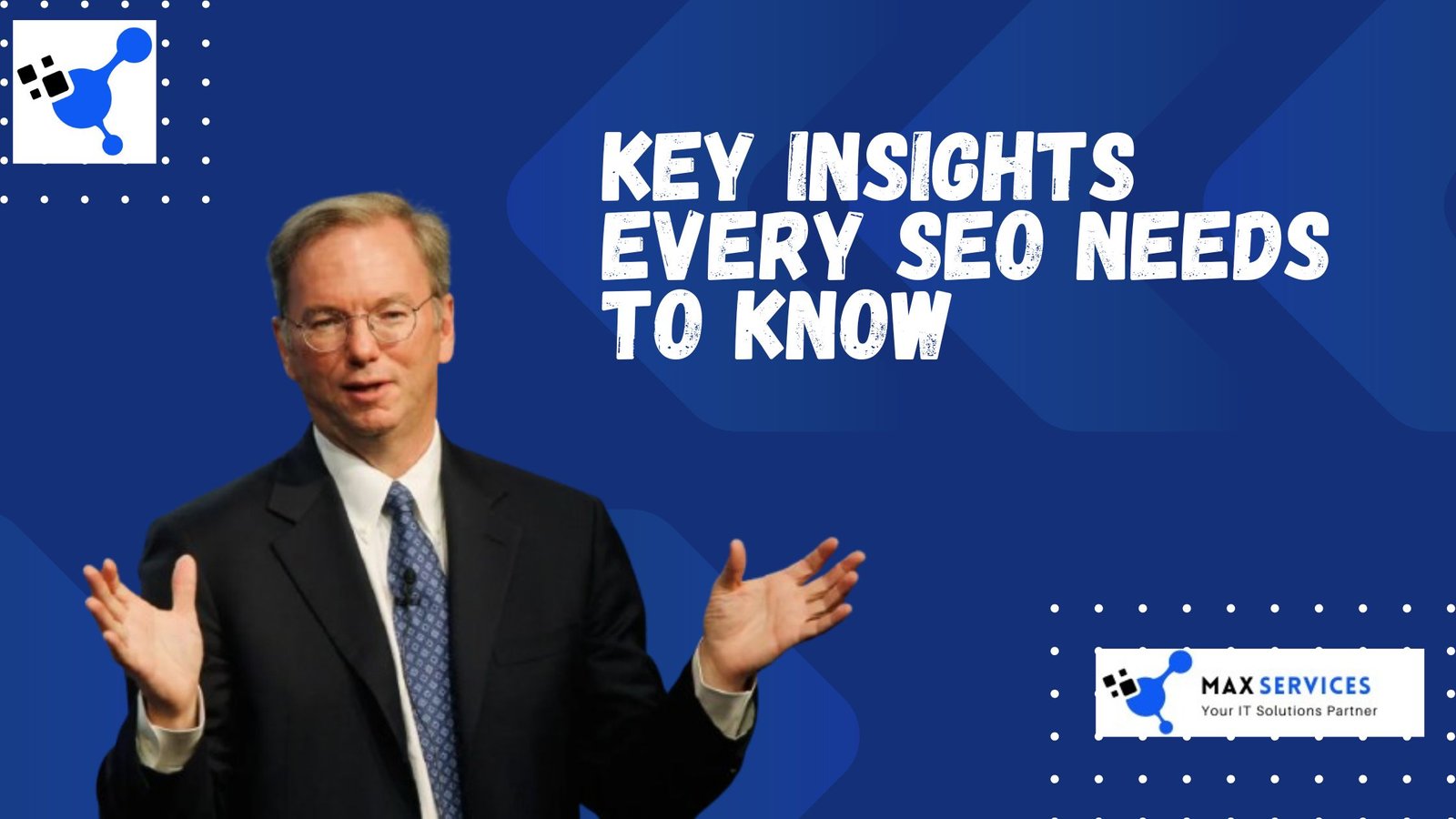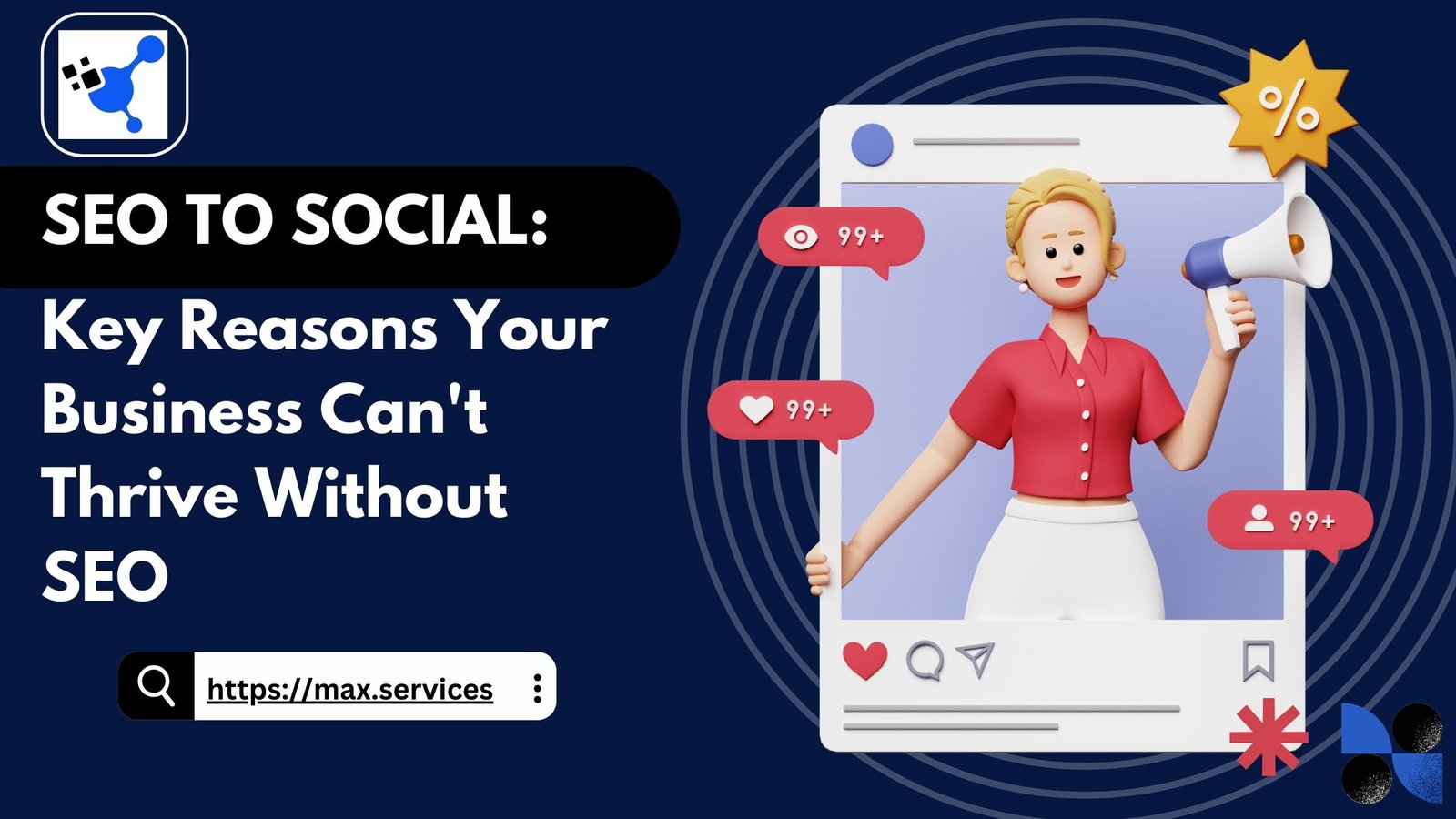
Eric Schmidt, former CEO of Google, has always been at the forefront of technology. Influencing the way we interact with the digital marketing world. His deep insights into artificial intelligence (AI) have sparked important conversations within the tech community. Especially regarding the future of search engines and the role of AI in shaping digital marketing strategies. As AI technology continues to advance at an unprecedented rate, Schmidt’s comments provide crucial guidance for SEO Marketer who need to stay ahead of the curve.
The Intersection of Technology and Humanity
Eric Schmidt’s recent comments about AI reflect his concerns and excitement about the future. He described AI as both “enticing” and “frightening,” acknowledging the potential of AI to revolutionize industries, but also warning about its unpredictable nature. According to Schmidt, AI is not just an evolution of technology; it’s a fundamental shift in the way humans interact with the world. The decisions we make today about AI will shape the future of humanity. Schmidt believes this is something that must be approached with caution and thoughtfulness.
For SEOs, Schmidt’s remarks are a wake-up call. AI is no longer a distant possibility; it’s already changing the way search engines function and how businesses approach digital marketing. The next few years will be crucial for SEO professionals, as the technology behind search engines evolves to incorporate AI-driven features that will drastically alter how search results are ranked and delivered. Schmidt’s reflections on AI point to a broader trend that SEOs should closely monitor: the intersection of technology, human behavior, and the evolving digital ecosystem.
The Role of AI in Shaping Search for SEO Marketer

AI’s impact on search engines is already being felt, and it’s expected to grow exponentially in the coming years. Sundar Pichai CEO of Google, has hinted that search will undergo profound changes by 2025, AI playing a central role. The introduction of Google Gemini 2.0, an AI-powered search engine, will mark a major shift.. Schmidt’s insights into the rapid advancements in AI computing capabilities. The scale and sophistication of AI systems will transform the way users interact with search engines.
For SEO Marketing, this means that the traditional methods of optimizing websites for search engines may need to be reevaluated. While keywords and backlinks remain important, AI’s ability to understand context, user intent, and natural language will change how search engines rank content. Schmidt’s vision of AI-driven search systems emphasizes the need for SEOs to focus on creating high-quality, relevant content that resonates with users on a deeper level. As AI continues to evolve, search engines will become more adept at understanding the nuances of human language, making it essential for SEOs to adapt their strategies accordingly.
The Enticing Potential of AI for SEO Marketer
Despite the concerns Schmidt raised about the potential dangers of AI, he also emphasized its exciting possibilities. For SEOs, AI presents an opportunity to enhance digital marketing strategies in ways that were previously unimaginable. AI can analyze vast amounts of data, identify patterns, and predict trends with incredible accuracy. This ability to process and interpret data on a massive scale can provide valuable insights for SEO Marketer, allowing them to fine-tune their strategies and make data-driven decisions that improve website rankings.
One of the most enticing aspects of AI for SEO is its ability to personalize user experiences. With AI, search engines can deliver more tailored search results based on individual preferences, search history, and browsing behavior. This means that businesses can create more personalized content that speaks directly to the needs and interests of their target audience. AI-powered tools can also help SEOs automate routine tasks, such as keyword research, content optimization, and backlink analysis, freeing up time for more strategic decision-making.
Moreover, AI-driven search engines can improve the accuracy of voice search, image recognition, and other emerging search technologies. As AI continues to advance, SEOs will need to ensure their content is optimized for a variety of search methods, including voice, visual, and conversational search. The potential for AI to revolutionize how users interact with search engines offers significant opportunities for businesses to gain a competitive edge in the digital marketplace.
The Frightening Realities of AI in Search
While Schmidt’s comments about AI are filled with optimism, he also highlighted the potential dangers that come with such powerful technology. One of his primary concerns is the concentration of power in the hands of a few tech companies. Which have the resources to develop and deploy AI systems at a scale that is unprecedented. Schmidt believes that decisions about the future of AI should not be left to tech companies alone. Instead, he advocates for a broader societal conversation about how AI should be developed and regulated to ensure it benefits humanity as a whole.
For SEOs, this raises important questions about the role of search engines and the potential for monopolistic behavior. As Google continues to refine its AI-powered search engine, SEO Marketer must consider how changes to the algorithm could affect their rankings and traffic. Schmidt’s warning about the potential for AI to exacerbate inequalities and concentrate power underscores the need for transparency in how search algorithms are designed and implemented. SEOs should stay informed about any changes to Google’s algorithms, particularly those that involve AI, to ensure their websites remain visible and competitive in the evolving search landscape.
Furthermore, Schmidt’s comments about the ethical implications of AI highlight the importance of responsible AI development. As AI systems become more advanced, they may raise concerns about privacy, security, and bias. SEOs should be aware of these issues and ensure that their digital marketing practices align with ethical standards. For example, SEOs may need to reconsider their approach to data collection and user privacy. Particularly as AI-powered tools become more capable of analyzing personal information.
The Future of AI and Search Marketing
As AI continues to evolve, it will undoubtedly reshape the landscape of search marketing. Schmidt’s reflections on the technology point to several key trends that SEOs should be prepared for in the coming years:
The Shift Toward Semantic Search: AI will enable search engines to better understand the meaning behind queries, rather than just matching keywords. This shift toward semantic search means that SEOs will need to focus more on the intent. Behind user searches and create content that answers questions in a natural, conversational manner.
Increased Personalization: AI will allow search engines to deliver more personalized search results based on individual preferences and behaviors. SEOs will need to optimize their content for a wide range of user intents and preferences to remain competitive.
Improve Voice and Visual search: AI improves, visual & voice search that will become initial. SEOs will need to optimize their content for these emerging search methods. Ensuring that it is easily discoverable through voice queries and image recognition technologies.
Automation and Efficiency: AI will enable SEOs to automate routine tasks, such as keyword research and content optimization. Allowing them to focus on more strategic aspects of digital marketing. However, this also means that SEO professionals will need to stay up-to-date. With the latest AI tools and technologies to remain competitive.
Ethical Considerations: As AI continues to evolve, SEO Marketer must consider the ethical implications of their work. This includes ensuring that their practices align with privacy regulations. Avoiding manipulation of AI systems, and creating content that is fair, accurate, and transparent.
SEO Marketer Embracing AI While Staying Cautious
Eric Schmidt’s reflections on AI serve as both a warning and a call to action for SEOs. The technology is advancing rapidly, and the potential for AI to revolutionize search marketing is enormous. However, this progress comes with its own set of challenges and risks. Particularly when it comes to issues of power, control, and ethics. SEO Marketer in digital marketing must stay informed about the latest developments in AI. Adapt their strategies accordingly to take advantage of the opportunities it presents while remaining mindful of the potential pitfalls.
As we move toward a future where AI plays an increasingly central role in search. It is clear that the world of SEO is on the brink of a major transformation. Those who embrace AI and use it responsibly will be well-positioned to succeed in the new digital landscape. At the same time, it is essential for SEOs to remain vigilant, ensuring that the technology is developed. And used in ways that benefit society as a whole. Schmidt’s insights remind us that AI is not just a tool. It is a force that will shape the future of humanity and SEO professionals must be prepared for the changes.


